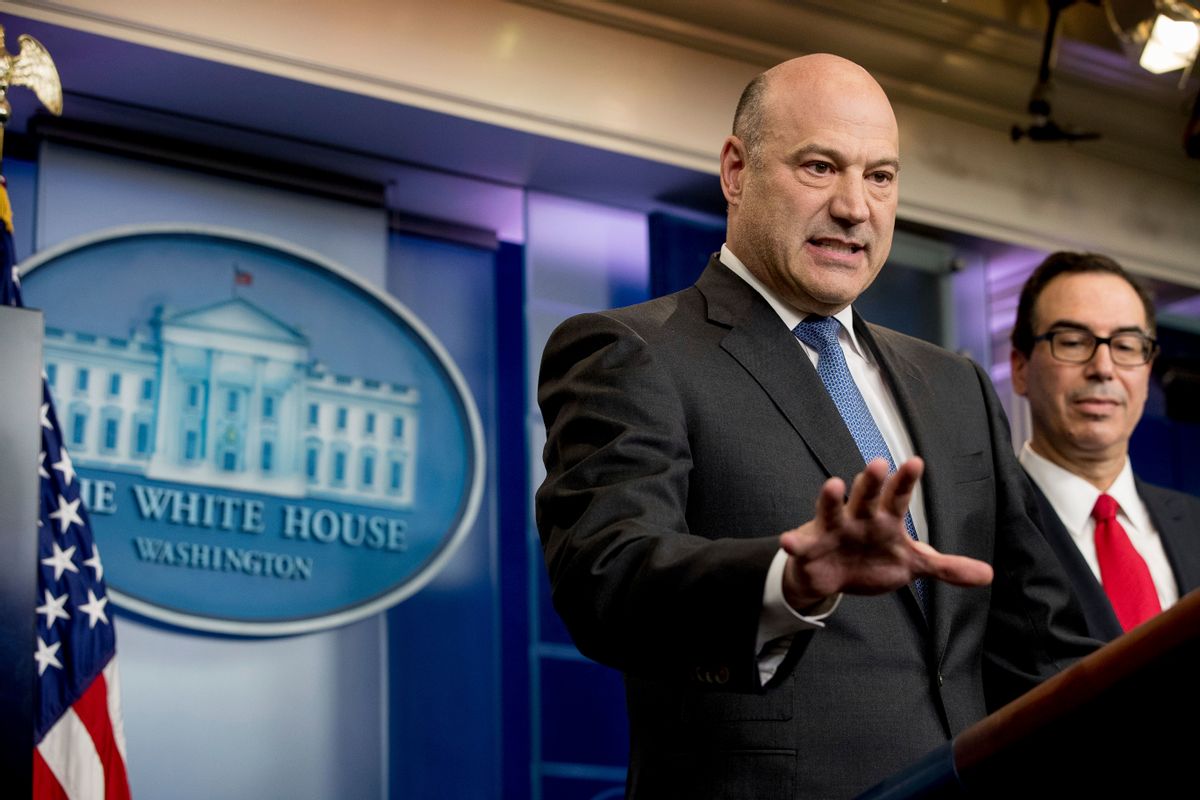The centerpiece of the Republican tax cut bills in both House and Senate is a massive reduction in the rate that large corporations pay. You wouldn't know it from the way that President Donald Trump and his surrogates frame the issue, however. That's because they try to refocus attention onto the idea that cutting business taxes is mostly about boosting employment.
"Americans deserve a raise, and President Trump is finally putting the American worker first," RNC spokeswoman Kayleigh McEnany spun it during an episode of the "Real News" propaganda series put out by the Trump presidential campaign on Facebook.
Trump and many other Republicans have made similar assertions, including a claim that American households will end up with about $500 billion in annual income, even though the total amount of corporate tax collected by the federal government amounts to only $300 billion annually. Treasury Secretary Steve Mnuchin has refused to release their full calculations, despite having repeatedly said that he would do so.
A number of business executives have also repeatedly undermined the GOP's claims about the likely effects of a large corporate tax rate cut. Bloomberg reported Wednesday that CEOs from Cisco Systems, Pfizer, Coca-Cola, and Amgen have publicly told their shareholders that they intend to use the money to provide dividends to shareholders or to purchase their own stock in the hopes of driving its price higher.
“We’ll be able to get much more aggressive on the share buyback” after a tax cut, Cisco's Kelly Kramer was quoted as saying.
Those individual companies' statements are in line with research conducted by Bank of America Merrill Lynch, which surveyed 302 companies in July and found that 65 percent of CEOs who responded said that they preferred paying off debts compared to 35 percent who said they would spend their tax cut money on investment.
Such actions make sense from a business perspective, since the overwhelming majority of large American businesses have no shortage of cash on hand thanks to record profits, lower employee costs thanks to automation and the still-low interest rates from the Federal Reserve.
The emerging reality of what businesses intend to do with their extra cash struck White House economic adviser Gary Cohn in the face at a meeting last month when he tried to conduct his own survey of CEOs at a conference. He found similar results, much to his chagrin.
“Why aren’t the other hands up?” he asked nervously as few executives raised their hands to say that they'd hire more workers if they paid less in taxes.
Companies also are paying a lower share of the tax burden than ever before, according to several analyses. In 1967, corporate taxes constituted about one-fourth of federal revenues but in 2016, they amounted to just over 5 percent.



Shares